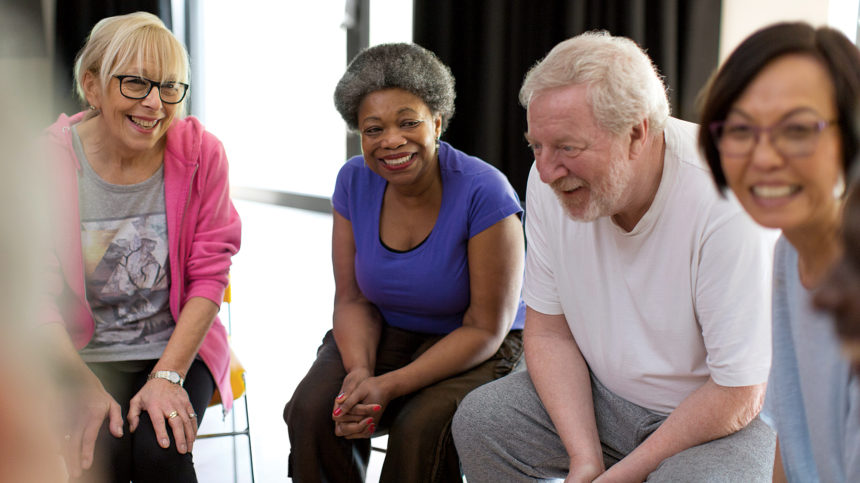
Singing-based group rehabilitation can support communication and speech production in stroke survivors who have difficulty comprehending or producing language (aphasia). Caregivers also benefited from this type of rehab, a new study finds.
Aphasia affects approximately 40% of stroke survivors and persists beyond one year in about half of cases. Loss of speech skills and comprehension can affect functional capabilities and quality of life, and lead to social isolation, the researchers reported. Past studies have shown that some of these patients can still produce words while singing.
Speech and social function
In the new study at the University of Helsinki, Finland, investigators recruited 54 patients with acquired brain injury and chronic aphasia, along with 43 family caregivers. Participants were randomized to two groups. Each group received a four-month singing intervention during the first or second half of the study in addition to standard care.
A trained music therapist and a trained choir conductor led the group-based training, which included weekly choir singing and melodic intonation therapy. Participants also received tablet-assisted singing training at home.
Researchers assessed patients on communication and speech production, mood, social functioning and quality of life, and family caregivers with questionnaires on caregiver burden. Assessments were conducted at baseline, five months and nine months.
First to include caregivers
When compared to standard care, participants who received the singing intervention showed improvements in their everyday communication and responsive speech production from baseline to the five-month stage. The changes were sustained through the nine-month check-in. There were also signs of improved social participation.
The study is the first of its kind to also follow caregiver outcomes, the researchers said. Participating caregivers also showed signs of improved psychosocial well-being, they reported.
According to the researchers, singing-based group rehabilitation should be utilized in health care as part of aphasia rehabilitation.
“In addition to training in speech production, group-based rehabilitation provides an excellent opportunity for peer support both for the patients and their families,” Sini-Tuuli Siponkoski said.
Peer support in aphasia rehab
Singing-based group rehabilitation should be used as part of aphasia rehabilitation, the investigators concluded.
“In addition to training in speech production, group-based rehabilitation provides an excellent opportunity for peer support both for the patients and their families,” said clinical neuropsychologist and researcher Sini-Tuuli Siponkoski, PhD.
The study was published in the journal Brain Communications.
Related articles:
Pressure injuries found in 11% of SNF stroke rehab patients
Chronic pain after stroke may alter body perceptions, study finds
Stroke patients see huge survival boost with modified cardiac rehab
Seated tai chi improves functional, mental health recovery in ischemic stroke



